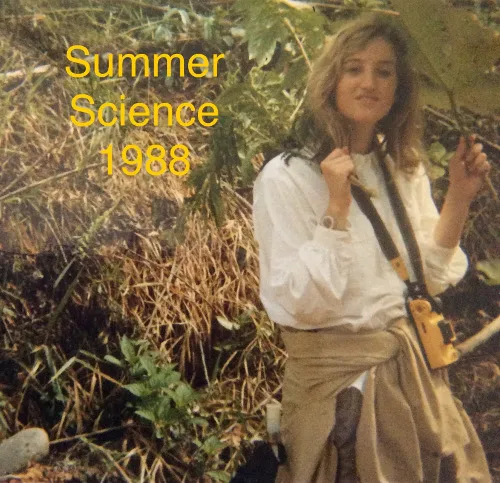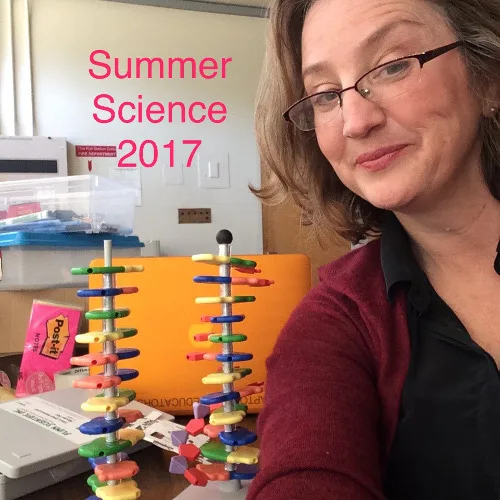Alumni Profile: Beth Alberts


Name: Beth Alberts
Education: University of California Berkeley, A.B. in Biochemistry; Stanford University, M.A. in Education and Teaching Credential; Alliant International University, M.A. in School Counseling
SFS Program: Ecuador Summer 1988 – Jatun Sacha Biological Center (Ethnobotanical Studies)
Profession: Science Teacher and College Counselor
Why did you choose SFS as a study abroad program?
It seems like a million years ago but I still remember clearly why I chose SFS. I wanted an adventure. I had been a serious and focused student throughout my life. I wanted to try something completely different and a little bit scary. At SFS, I was still serious and focused but I was also in the Amazonian Rain Forest! Coming from San Francisco, that seemed just about as adventurous as life could get for a inner city kid.
At the time, I thought I was very, very brave. And it was different back then. I was literally cut off from contact with everyone I knew in the world. There were no phones, no computers, no fax machines, no connectivity. There were old-fashioned letters. But “after having seen the only town in the area, I have lost all faith in any mail getting home.” I was isolated and remote from everything I knew. And it was exactly what I wanted. As a result, I gained confidence in myself and an abiding trust in humanity. I have retained this trust throughout my life.
What did you gain from your SFS experience?
I developed a love for Ecuador and its people, and with that came the much broader appreciation for the wisdom and knowledge of cultures throughout the world. Our human experience is incredibly diverse and amazing. There is always more to learn and there are so many brilliant teachers. I still carry many of them with me: Jaime who taught us about forest regeneration and the interdependence of jungle species. He was the coolest! Rocio who taught us about the foods, medicines and spiritual life of the local community. She read my palm and predicted my future. David who taught us how to run controlled experiments with little ”real” equipment and massive environmental factors that were always working against us – the heat, the mud, the wind, the rain, the mold! Alejandro, who taught us to look for signs of the big dangerous snakes when we were out in the field and painted us with achiote to honor and protect us. He lived in a house on stilts with no walls in the middle of paradise. These are only a few of the people who taught me and impressed me.
My fellow students from the United States were also amazing. I met adventurous, smart people from all over the country and from all different U.S. cultures.
What is your most profound or lasting memory from your SFS program?
(See above. Really it was the people!) But my most lasting and impactful science memory was that my experiments were all INCONCLUSIVE! This created a paradigm shift for me. After all those years of reading about successful experiment after successful experiment that led ‘seamlessly’ to our current scientific dogma and after all those high school and college labs that ‘worked’, I realized that the MAJORITY of SCIENCE EXPERIMENTS are FAILURES!
I spent countless hours, trying to figure out why there was no plant growth at the base of the Piperacea trees in the forest. I ran controlled experiment, after controlled experiment carefully testing the different possibilities. Nothing, nothing and nothing. I didn’t make any great discovery or even gain any insight into the question. I was seriously disappointed.
Now, I very consciously teach my own students that failed experiments are normal and expected. Successful experiments are rare. I challenge the science history found in textbooks. My students do ‘real’ experiments in my classes. They fail. They are inconclusive. But they always learn something. The focus becomes what next? What can we improve to make this experiment better? Scientific thinking is the basis for all my teaching. Experiencing real science is the thing I plan for. It is what engages my students as active learners.
What advice would you give to a prospective SFS student?
Go for it! Be scared, be nervous, be apprehensive but do it anyway. Your limits will be tested. You will look back and realize that those were some of the most fulfilling times in your life.
What do you do for work?
I am a science teacher and a college counselor in the public school system. Every day, I work with high school students from varied backgrounds. I get to help them learn academically and plan for their futures. My job entails a lot of prepping, logistics, communication, love, support, patience, dedication and belief in the future. It also requires collaboration with other education professionals and community organizations. Everyday, there are hundreds of things that come at me that I have to deal with. I have to keep a class of 35 students engaged and on task, as I mull over what to do about a student who is in an inappropriate foster care situation. I have to respond to anxious parents as I write letters of recommendation for their children and collect data for the principal to take to the board meeting. I have to monitor the academic progress of my students who may not graduate, contact the Special Education teacher and grade yesterday’s science labs. Oh – and I have to pick up Elodea, crickets and soil for the lab rotations on Monday!
Most recently, I was hired to revise the remedial science curriculum for our school district. Students who fail science classes must take credit recovery classes after school, on Saturdays or in dreaded summer school. In the past, most of these “science” classes were textbook and worksheet-based. They were dreary and not very educational. You could hardly call them science classes. I had a budget and the freedom to redesign and implement a new curriculum. Now, these classes are hands-on, inquiry-based and student-centered. The teachers enjoy teaching the curriculum and the students prefer the active learning – even if they still have to go to summer school.
Did your SFS experience contribute to where you ended up?
The SFS experience absolutely enriched my abilities to be an effective science teacher and contributed to where I ended up. I was exposed to teachers and students who were working off the grid, in the field. They were gritty and resourceful, engaged and curious. I wanted to bring that energy, determination and resourcefulness back to San Francisco for city kids to experience.
What advice do you have for other SFS alumni looking to get into your field?
Teaching is the most important job in the world and it is the most difficult job in the world. Teacher burnout is brutal and destructive to our society. Teachers need to be paid much, much more and the workload needs to be reduced. Most people can not financially afford to be teachers anymore and most drop out after a few short years of teaching. You can plan on that or you can commit to the long haul and make it work for you. If you are a science teacher, you have a great value to school communities. Figure out how to maximize your value. In order to remain a science teacher, I have had to negotiate and redefine myself to make it work for me. Otherwise, I would have dropped out a long time ago too. Find the right school community to work in. Look for collaborative, supportive, joyful learning environments. Find excellent mentor teachers and administrators who value teachers more than politics. Stay tough and stay gritty. Always bring love to the job!
Related Posts

Reuniting with Tanzania: Eric Walsh’s “Reunion Flag” Keeps the Spirit Alive

Restoration on a Cinder Cone: A Syntropic Story
